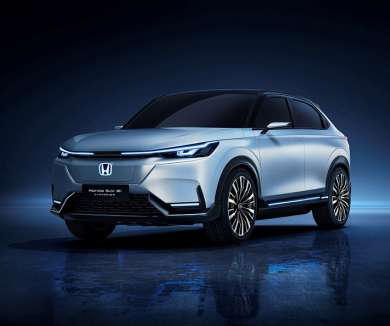Honda targeting 100% BEV & FCEV sales in N America by 2040; new e:Architecture EVs coming in second half of this decade
Green Car Congress
APRIL 26, 2021
Honda last week announced key targets for sales of electrified vehicles in North America, with a plan to make battery-electric and fuel cell electric vehicles (BEVs and FCEVs) to represent 100% of its vehicle sales by 2040, progressing from sales of 40% by 2030 and 80% by 2035. Honda SUV e:prototype shown at Shanghai 2021.












Let's personalize your content